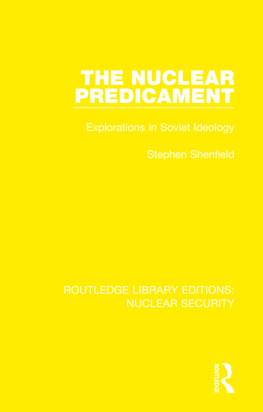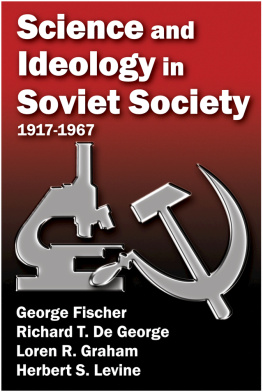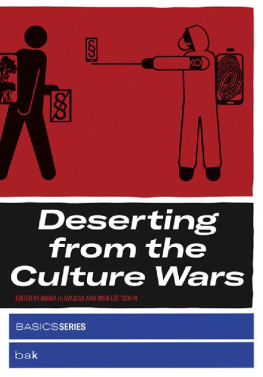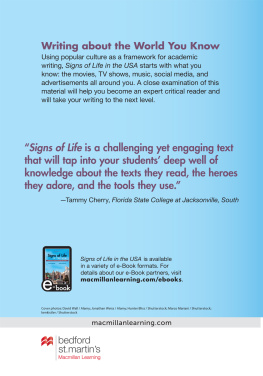Whitney - Finks: How the C.I.A. Tricked the Worlds Best Writers
Here you can read online Whitney - Finks: How the C.I.A. Tricked the Worlds Best Writers full text of the book (entire story) in english for free. Download pdf and epub, get meaning, cover and reviews about this ebook. City: La Vergne, year: 2017;2016, publisher: OR Books, genre: Politics. Description of the work, (preface) as well as reviews are available. Best literature library LitArk.com created for fans of good reading and offers a wide selection of genres:
Romance novel
Science fiction
Adventure
Detective
Science
History
Home and family
Prose
Art
Politics
Computer
Non-fiction
Religion
Business
Children
Humor
Choose a favorite category and find really read worthwhile books. Enjoy immersion in the world of imagination, feel the emotions of the characters or learn something new for yourself, make an fascinating discovery.

Finks: How the C.I.A. Tricked the Worlds Best Writers: summary, description and annotation
We offer to read an annotation, description, summary or preface (depends on what the author of the book "Finks: How the C.I.A. Tricked the Worlds Best Writers" wrote himself). If you haven't found the necessary information about the book — write in the comments, we will try to find it.
Whitney: author's other books
Who wrote Finks: How the C.I.A. Tricked the Worlds Best Writers? Find out the surname, the name of the author of the book and a list of all author's works by series.
Finks: How the C.I.A. Tricked the Worlds Best Writers — read online for free the complete book (whole text) full work
Below is the text of the book, divided by pages. System saving the place of the last page read, allows you to conveniently read the book "Finks: How the C.I.A. Tricked the Worlds Best Writers" online for free, without having to search again every time where you left off. Put a bookmark, and you can go to the page where you finished reading at any time.
Font size:
Interval:
Bookmark:
Table of Contents
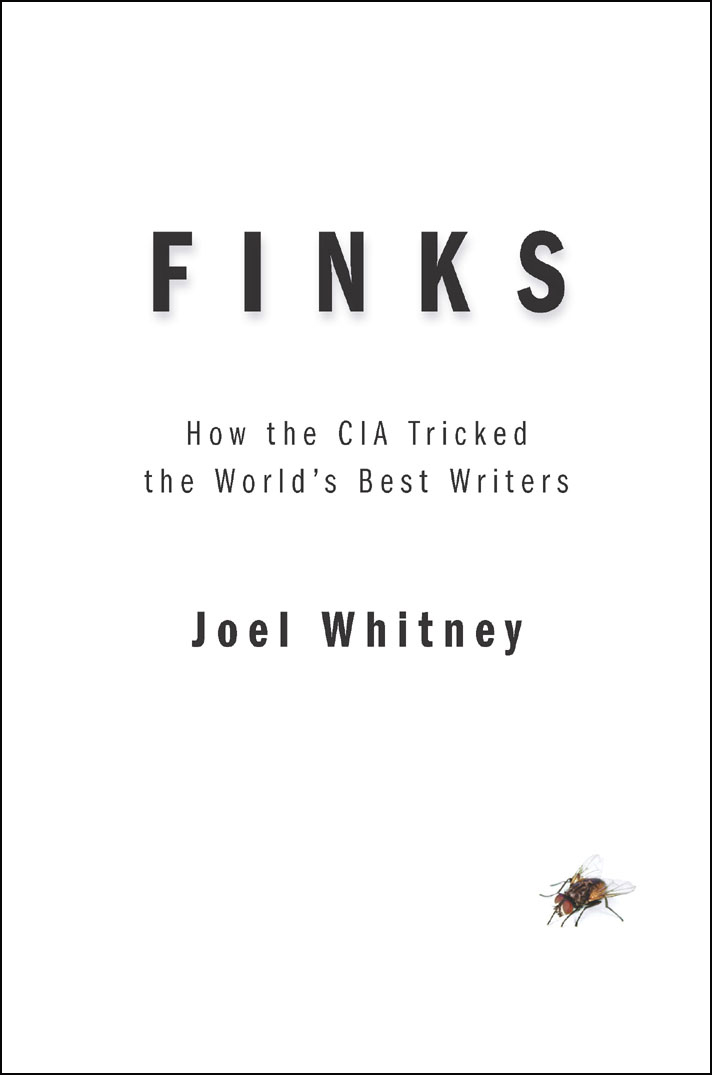

A booklike a childtakes a village to raise. Friends and colleagues who read the manuscript during the beginning, middle, and end of my research and drafting bear my deepest gratitude. In the very beginning... were my friend Genevieve Walker, my brother Jake Whitney, my friend and ex-neighbor Grace Bonner, my colleague and friend Tana Wojczuk, my neighbor and friend John OConnor, and my friend Stephen Raleigh Byler. Among those who read it later are friend and colleague Lisa Lucas, the historian of modern India Ramachandra Guha, the environmental writer (and my current neighbor) Andrew Blackwell, Salon founder and friend David Talbot, author Peter Richardson, and my colleague and friend Suzanne Menghraj. I owe thanks to Kerry Lauer and Dave Daley, Salons former and current editor-in-chief for publishing the long 2012 article, The Paris Review, the Cold War, and the CIA, out of which this book morphed.
I am indebted to those many former stakeholders and bearers of five- and six-decade-old memories who let me interview them, short format or long. They added context to very old archives and accounts, or otherwise helped me reenvision the partially erased past. Nelson Aldrich spoke to me many times, Sarah Plimpton spoke to me for a magazine piece on Plimpton and Hemingway that got folded into this narrative instead; Bob Silvers talked to me several times by phone and email and read a draft of that same magazine piece and offered suggestions and commentsfor which Im very grateful. Former Paris Review Paris editor Larry Bensky, author John Berger, author William Blum, author Henrietta Boggs, author and CCF graduate Keith Botsford, author Olga Carlisle, author and scholar Russell Cobb, author Peter Finn, author Philip Knightley, poet Frederick Seidel, author Sol Stein, and author and scholar Hugh Wilford gave short interviews or answered a quick question or two (or three) or otherwise pointed me forwardor backwardand Im grateful to them, as well. Im grateful to Lorin Stein and Jonathan Galassi for help contacting one or two on the list above, and Lorin for pointing me to an academic paper relating to those questions in this book. The author and scholar Patrick Iber has been exceedingly supportive and informative on questions about the Congress for Cultural Freedom in Latin America. Critic George Scialabba answered my nitpicky questions about Dwight Macdonald.
Frances Stonor Saunders was especially helpful not just for her inspiring book, Who Paid the Piper? as it was called in the UK (The Cultural Cold War as I read it in the New Presss edition in the United States); Im grateful for the several instances during which she answered questions and partook in a long transatlantic telephone interview about her own research break-throughs, techniques, and difficulties getting her book published in the United States, where she was told by her editor (before the New Press saved the day) to insert a disclaimer stating that the CIA were on the side of the angels. Im grateful for all the cussing she did over the phone in response to that memory. My own Chapter 5 on CCF censorship is the one that owes the most to her important research and Im glad, in short, she withstood the same casual censorship we take for granted here in the United States.
Thanks to archivists at the Morgan Library (especially Maria Molestina- Kurlat) and at Princeton, Seton Hall (Alan Delozier and Amanda); Columbia Rare Books and Manuscript Librarys archivists (Thai Jones in particular)and to The Bafflers John Summers for the tip hereand NYUs Tamiment Library (especially Sarah Moazeni), plus NYPL and BPL.
Im grateful to OR Books founders Colin Robinson and John Oakes for the great company theyve built and to my editor John Oakes in particular for many graces, deadline indulgences, good advice, laughs, and guidance. I thank him, too, for the story about his former boss Barney Rosset which led to the search that this book grew into; and for his patience after the very scope of the book expanded to include all these places and names and people which resulted in late deadline after late deadline for two and a half years. Im grateful to Justin Humphries for fine work right-sizing the book and to Natascha Ullman in the publicity department. Im grateful to my fact checker and Bennington Field Work Term research assistant for the winter of 20142015, Layne Eckensberger. And Im grateful to my colleagues at Guernica: A Magazine of Art and Politics for keeping the site going with distinction while I took a short leave to finish a few freelance pieces under a tight deadline (which corroded into a luxuriously long book leave). The brilliant filmmaker and my friend, Immy Humes, is very close to the heart of this book and I thank her for those first letters she showed me, for making a great documentary film about her father, Doc, and for caring about this topic before me, for sharing her post-production experiences and for being a great guide.
And thanks especially to my newly indispensable first reader, who calls me B though there isnt a B anywhere in my name. And thanks to my familymy three brothers and one sisterfor unquestioning moral support, and to my parents Peter and Victoria for more than I can name: from unbending principles in pursuit of justice (on the lofty side) to putting me up, loaning of laptops, feeding me when this project was an incoherent freelance summer of what may have appeared to beand wastemporary joblessness (on the less lofty).
The people were fighting today we were supporting in the fight against the Soviets.
Hillary Clinton
In November 1982, thirty years after the launch of The Paris Review, John Train, the founding managing editor of the magazine, wrote to the president of Freedom House, a democracy watchdog organization. Train wanted to found a new nonprofit group whose activity will be collecting money... to be used within the general area of the media, to encourage the dissemination of pro-freedom and pro-democratic ideas [in Afghanistan]. Train would synchronize his efforts with those of the CIA-supported mujahideen to battle against the Soviet presence there. The mujahideen, of course, are those fighters who engage in jihad. Made up of local and foreign fighters, this was the ilk out of which Osama bin Laden and Al-Qaeda emerged. In the same letter, Train volunteered his NGO, the Afghanistan Relief Committee, to finance a film on Afghanistan. The film will be shown first on public television and thereafter on the Christian Broadcasting Network in Norfolk, Virginia. Train named colleges as one of the films key target audiences. He was doing Cold War propaganda on broadcast television.
Train had come a long way from the Pasternak campaign. In addition to putting up money for The Paris Reviews launch and having given it its name, Train also sponsored the magazine with a subsidy provided through an indefinitely recurring ad for his finance company. Train also helped streamline The Paris Reviews Paris operation, trying to convince its associates thereincluding the future creators of Charlie Hebdo magazineto help sponsor The Paris Review either by erasing its rent or another scheme. Acting at apparent cross-purposes, he worked out the logistics for the Pasternak interview after having pushed the magazine away from publishing criticism and remaining apolitical, forsaking those axe-grinders and drum-beaters.
As early as the 1950s, Train allegedly had direct ties to the covert state through a shell company with a CIA code name. In one proposal, Islamist commander Gulbuddin Hekmatyar was floated as a fixer between Train and his propagandists on the ground: today, Hekmatyar is designated by the US government as a terrorist who openly supports ISIS, the Islamic State terrorist group. Herein one
Next pageFont size:
Interval:
Bookmark:
Similar books «Finks: How the C.I.A. Tricked the Worlds Best Writers»
Look at similar books to Finks: How the C.I.A. Tricked the Worlds Best Writers. We have selected literature similar in name and meaning in the hope of providing readers with more options to find new, interesting, not yet read works.
Discussion, reviews of the book Finks: How the C.I.A. Tricked the Worlds Best Writers and just readers' own opinions. Leave your comments, write what you think about the work, its meaning or the main characters. Specify what exactly you liked and what you didn't like, and why you think so.

